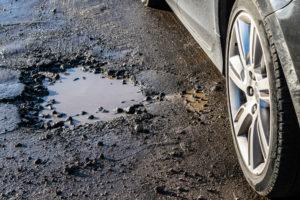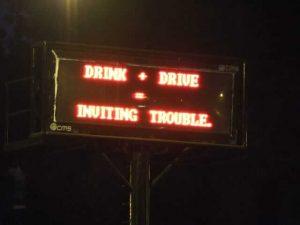
When you hit a pothole, your first thought is probably the property damage to your vehicle. After all, no one wants to deal with a flat or punctured tire, bent rims, or worse. Hitting a big pothole at a bad angle could even lead to a broken axle. No matter what, the expenses add up quickly, and you wonder if there is any way to recover the money you must spend on repairs.
This worry could increase if hitting the pothole caused a collision, and you have medical bills, lost income, and other expenses, in addition to pain and suffering. Unfortunately, these are the dangers of potholes in Louisiana, and it is not always clear who is liable for your damages.
Who Is Legally Responsible for Road Maintenance?
At first glance, it may seem easy to determine who has legal responsibility for keeping a road in good, drivable condition, free from major hazards like potholes? Is it a state highway or a municipal street? Is the parish responsible?
However, this is rarely straightforward. Multiple parties are often responsible for different tasks related to road maintenance. For example, one agency may clear the drains to prevent standing water, while another maintains the asphalt. Pothole repair could fall under the city, parish, state, or federal government. Some jurisdictions could even share responsibility for this specific task.
Getting to the bottom of who maintains the stretch of road where your accident occurred can be challenging. In general, you could start with whether it is a federal, state, or local road. Then, you could contact the corresponding transportation department. Unfortunately, you might find yourself spending a lot of time contacting each and being referred to another.
There Are Limitations on Suing Some Government Agencies
In addition to struggling to determine liability, another challenge you could face when seeking compensation for your pothole damage is that state law bars you from suing some government agencies. For others, you could encounter strict limitations on bringing a case.
La. Rev. Stat. § 13.5106 sets out how you could pursue compensation from a government agency in Louisiana. The rules include:
- You can only file a suit in state court.
- There is a limit to recovery due to pain and suffering.
- You can only recover particular damages.
- Any recovered funds must go into a reversionary trust.
A reversionary trust is an account that only allows the victim to pay for medical care and other expenses as they occur. The trustee must approve when you access your money. In addition, you cannot spend any award you receive for any other purpose.
What do I need to prove in a pothole claim against the government?
When you bring a pothole-related accident claim against the government, you will often have some significant obstacles to clear. Initially, you must have evidence to prove that the government was aware of the pothole or road issue. This evidence might consist of recorded instances of complaints submitted through the proper governmental channels or testimonials from people who have taken steps to notify the government themselves.
However, even evidence of governmental knowledge of the issue is not enough. You must also be able to prove that the pothole is not merely a defect or dangerous, but “unreasonably dangerous” under the law. This second hurdle can make it very difficult for victims of accidents due to potholes or damaged roads to successfully bring cases against the governmental agency potentially at fault for their accident.
If I can prove the government was at fault for my accident, will they pay?
While being able to successfully bring a pothole accident case against a government may be difficult, even a positive ruling may not mean you will receive compensation.
The main factor as to whether or not the government will pay a claim against them is where the accident occurred and what governmental agency is potentially liable. This is because each government may or may not carry insurance.
Some governments carry their own insurance to help pay claims due to accidents related to potholes and damaged roads. These agencies are the most likely to pay, as they have the means to offer compensation to victims of accidents without unplanned costs directly affecting their yearly budgets.
When a government or municipality in Louisiana doesn’t have insurance it is possible they may pay a claim, but it becomes much less likely. This is because the Louisiana law directly limits what steps may be taken to force the government to pay a claim. It is unfortunate, but in some cases, there are very few options available.
What Do I Do If I Had a Pothole Accident?
If possible, you can file a police report. In addition, have law enforcement come to the scene and document what happened and the damage to your vehicle. As much as safely possible, take pictures or video of the pothole, your car, and others damaged by the same hazard. Finally, contact your insurer if you have collision coverage and discuss your options for repairs if you want to file a claim and pay a deductible.
Alternatively, you could file a claim with the Louisiana Department of Transportation & Development (DTOD) if your damage occurred on a state road. Contact the parish or city to learn more about your options otherwise.





